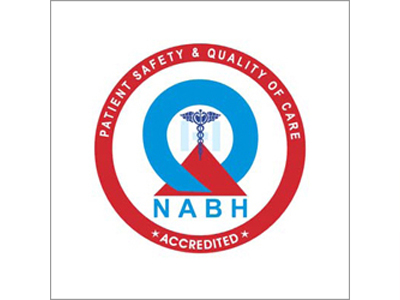Hyderabad, July 15, 2019: A revolutionary approach to treating chemical burns in the eye is beginning clinical trials. For the first time, a tissue-softening enzyme - collagenase - will be used in patients who have suffered acid attacks or industrial accidents. The first-in-man trial will examine how effective the enzyme is at softening the underlying tissue in the eye, allowing the patients’ own stem cells to repair the damage and restore the patient’s sight.
The trial involving 30 patients is funded by the Ulverscroft Foundation, a UK charity that supports organisations helping the visually impaired. It will be carried out in collaboration with Dr Sayan Basu (Clinician) and Dr Vivek Singh (Scientist) at the world-renowned L V Prasad Eye Institute in Hyderabad, India. The clinical trial follows research by a team from Newcastle University, UK, who earlier this year showed that applying collagenase to the cornea softens the underlying tissue, allowing the stem cells situated there to repair any damage. “Suitable participants for the trial will be selected by an assessment team at the L V Prasad Eye Institute after rigorous medical and ethical approval, and results from the trial are expected in 2021,” said Dr Sayan Basu, Director for the Centre for Ocular Regeneration, L V Prasad Eye Institute.
“If the trial is successful, it can save time and money in treating alkali burn patients, without the need for long term follow-up and the use of limbal transplantation. Recovery too can be faster for the patient,” said Dr Vivek Singh, Lead Scientist at L V Prasad Eye Institute.
Every year, about two million people worldwide become blind due to corneal trauma, with 1 in every 5 cases caused by chemical burns to the eye. The tissue-softening enzyme collagenase can prevent loss of corneal stem cells following an injury, and could prevent patients from losing their sight. It offers hope to almost 500,000 people a year who lose their sight due to chemical burns including acid attacks.
Professor Che Connon, the director of the study and leader of the Tissue Engineering Lab at Newcastle University said: “The simplicity and relative low cost of this therapy compared to existing approaches in which stem cells have to be transplanted is a game-changer. It greatly expands the number of potential patients being treated for corneal burns across the world, and may well have applications in other diseases.”
The technology behind the clinical trial: Previous research by the Newcastle team recreated the effects of chemical burns and treated the wounded, stiffened areas of the cornea using small and localised doses of collagenase. The enzyme made the area once again pliable and able to support the patient’s own stem cells and promote healing.
The collagenase formulation has already been approved for related therapeutic applications by both the US Food and Drug Administration and the European Medicine Agency, so the team were quickly able to take it into clinical trial.
Dr Ricardo Gouveia, Research Fellow at Newcastle University and lead author of the research is very optimistic about this next stage: “As a scientist it is exceptionally rewarding to be involved in a bench-to-bedside project, using a scientific discovery to create a new treatment that benefits patients and helps improve lives. This is especially true when such work is made possible by the support of a civil society organisation like the Ulverscroft Foundation.”
Previous research: https://www.nature.com/articles/s41467-019-09331-6
About Ulverscroft Foundation
The Ulverscroft Foundation was founded as a charity in 1973 to help visually impaired people. It supports research into the diagnosis and treatment of eye diseases, and funds medical equipment and facilities.
Email: Joyce Sumner via foundation@ulverscroft.co.uk
Website: www.ulverscroft-foundation.org.uk/
About L V Prasad Eye Institute
The L V Prasad Eye Institute (LVPEI) was established in 1987 at Hyderabad as a not-for-profit, non-government, public-spirited, comprehensive eye care institution. LVPEI is governed by two trusts: the Hyderabad Eye Institute and the Hyderabad Eye Research Foundation. The Institute is a World Health Organization Collaborating Centre for Prevention of Blindness and a Global Resource Centre for VISION 2020: The Right to Sight initiative. LVPEI has ten active arms to its areas of operations: Clinical Services, Education, Research, Vision Rehabilitation, Rural and Community Eye Health, Eye Banking, Advocacy and Policy Planning, Capacity Building, Innovation and Product Development.
The LVPEI pyramidal model of eye care delivery currently includes a Centre of Excellence in Hyderabad, 3 tertiary centres in Bhubaneswar, Visakhapatnam and Vijayawada, 19 secondary and 180 primary care vision centres that cover the remotest rural areas in the four states of Telangana, Andhra Pradesh, Odisha and Karnataka.
For further information, please contact:
Dr Sreedevi Yadavalli
Head - Communications & Corporate Relations, L V Prasad Eye Institute
Tel: +91 040 23547254, +91 040 30612444; Mobile: +91 9849171895
Email: ysreedevi@lvpei.org
Website: http://www.lvpei.org


